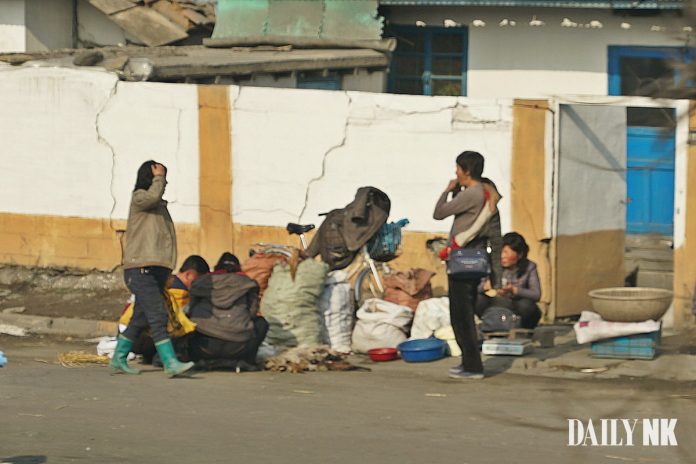
North Korean authorities have cut market operation hours as part of a strategy to push people into manure production, which is the first national campaign of the new year. The move has resulted in an outpouring of complaints from people in the country.
“Since the new year, the market hours in Chongjin have been changed for the sake of manure production,” a source in North Hamgyong Province told Daily NK on Jan. 9. “The markets used to be open for three hours between 2 PM and 5 PM, but now it’s been reduced to two hours.”
According to the source, the markets in Chongjin are only operating for two hours a day between 3 PM and 5 PM. For people who are already struggling to earn a living, the reduced market hours only further threaten their livelihoods.
Since the outbreak of COVID-19, North Korea has drastically reduced the operating hours of markets as part of the country’s pandemic prevention measures. Before COVID-19, the markets in Chongjin were actually open for eight hours between 1 PM and 9 PM. After the spread of COVID-19 however, the market’s hours of operation were reduced to five hours in summer (2 PM to 7 PM) and three hours in winter (2 PM to 5 PM).
The division of market hours into “summer hours” and “winter hours” is connected to North Korea’s pandemic period ban on people traveling at night, with those hours varying between summer and winter.
For market sellers, one of the most frustrating aspects of the change in market hours is the timing. Winter is a particularly profitable period for vendors, and the change in hours represents fewer opportunities to sell their wares.
“When the market was open for three hours a day, people just barely managed to maintain their livelihoods. But with manure production being used as an excuse to cut market hours even further, people don’t know how they’re going to survive,” the source said. “Even the people who have [stalls] inside the markets [as opposed to selling out in the streets near markets] are turning to selling on the streets in order to survive.”
The source went on to say that, “Frankly speaking, people can only participate in mobilization campaigns if they make enough money to survive. Yet the North Korean authorities are cutting market hours and pushing starving people into manure production as if they’re cattle. For those who are in desperate need of something to eat right away, there ends up being no other choice except to go out and sell on the streets.”
As more and more people engage in street commerce, the city of Chongjin is mobilizing a large number of officers from the municipal police force to conduct severe crack downs on street sellers.
“In Chongjin, the number of security agents on the streets is steadily increasing, and they are cracking down on street sellers,” the source explained. “Those street sellers in the most dire need of food are staking their lives on making sales while dodging the police.”
The source further reported that this situation has caused friction between police officers and vendors, leading to cat-and-mouse chases throughout the city.
“It’s truly painful to see the way that people are struggling to make ends meet,” the source said. “Women in particular are struggling with the incredible challenge of selling goods on the street to feed their families, and, on top of that, they still have to take part in mobilization campaigns.
“It’s not an exaggeration to say they are the most miserable women in the world right now,” he added.
Translated by Rose Adams. Edited by Robert Lauler.
Please direct any comments or questions about this article to dailynkenglish@uni-media.net.

















